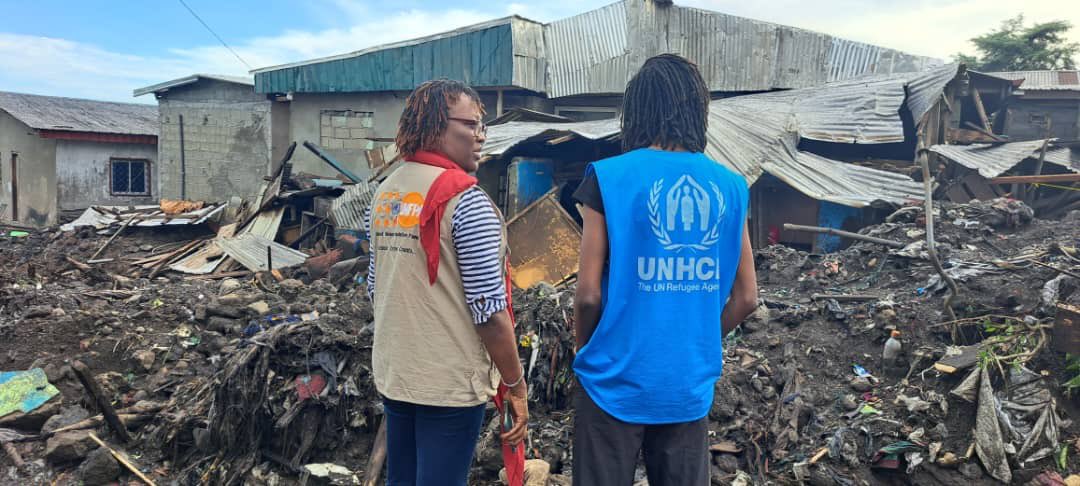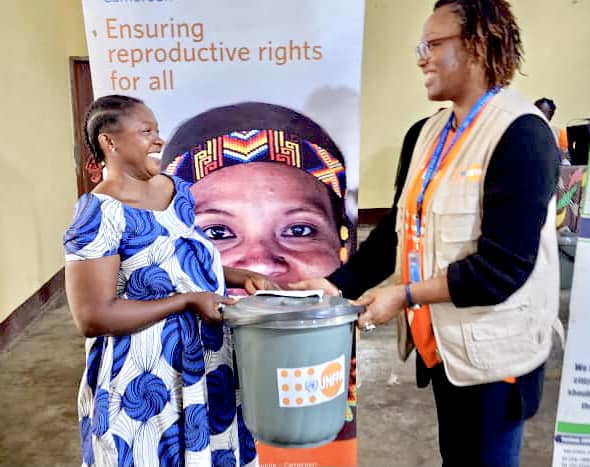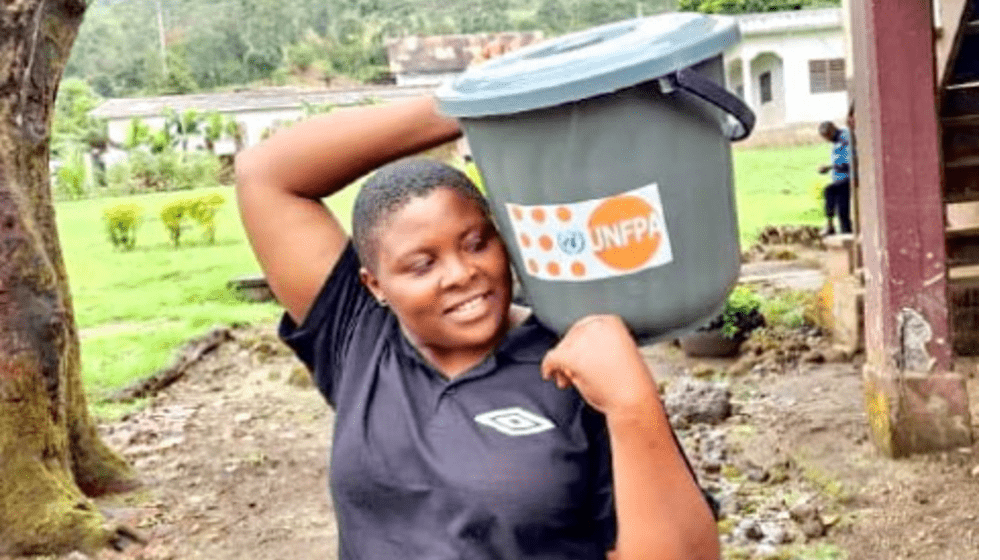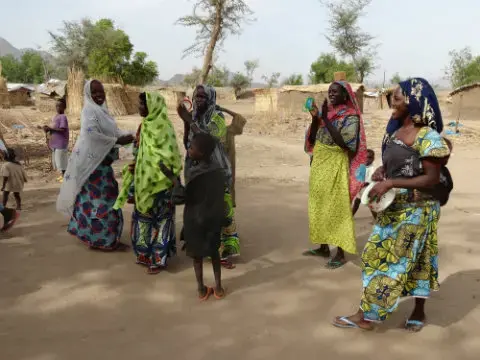
at the disaster site during the rapid needs assessment
Photo: @UNFPACameroon
Buea, South-West Cameroon -On March 18, 2023, torrential rainfalls followed by mudslides struck the city of Buea, chief town of Cameroon's South-West Region, a region counting already 736,546 people in need of humanitarian assistance according to the 2023 Humanitarian Response Plan. The incident resulted in flash floods, causing extensive damage to property and human casualties in Buea town and the surrounding villages of Bova and Bokwai. The incident has killed two persons, wounded several others, left over 1,100 homeless and destroyed livestock and other valuables. The affected population underlined it is the first one of this kind in over a decade. According to UNHCR preliminary data, among those affected, there are about 442 women of reproductive age including 47 potentially-pregnant women. Out of the young persons, 232 are adolescent girls, and 210 boys.
Preliminary UNFPA findings on needs and early multisectoral response.
UNFPA and some partners of the GBV AoR undertook a deep rapid assessment including a safety audit in the area hit by the floods. The findings of the mission showed that most of the affected households are women-led. Many waterpoints were destroyed. As a consequence, access to clean water to ensure menstrual hygiene management remains a challenge for women on periods. In addition, even if the main water catchment was not destroyed, all the supplying pipes got broken, a situation which will exacerbate water shortage in nearby neighbourhoods of Buea town, leaving many families dependent on rain or water from wells and pipes in far-away neighbourhoods for household chores.

Photo: @UNFPACameroon
There is a serious lack of shelters for affected people as the flood was followed by a demolition of the houses located in the risk zone, forcing the inhabitants to relocate to safer areas. The majority of them found refuge in the houses of goodwill hosts or acquaintances. There are others left with no option to sleep in the open despite safety risks including sexual violence. Given the cold weather prevailing in the location at the moment, the situation has health implications. Latrines have been destroyed. To respond to nature’s call, the affected population, including women and girls, have to beg their neighbours’ own. At night, this becomes very challenging. The means of subsistence and livelihoods have been destroyed or washed away by the water. This has been particularly hard for women who were predominantly engaged in small businesses around affected houses. Many are left with nothing while they have children and family members to provide for. In the discussion with women, many reported their fear of the future for their daughters, and themselves as many may engage in negative coping strategies to survive. There is therefore a feeling of collective anxiety within the population with the fear that similar incidents would occur given that this is the start of the rainy season. The flooding has triggered various levels of psychosocial distress due to associated socioeconomic losses which have dramatically affected the mental health and psychosocial well-being of the population. They may be subject to mental health conditions like Post Traumatic Stress Disorder (PTSD), depression, anxiety and stress. They, therefore, need psychosocial support and mental health care for those with high levels of psychological distress.
The need for protection is enormous. Women and girls are at risk of GBV because of their vulnerabilities. The security audit revealed that several cases of GBV were perpetrated on women, girls and children within the host population. Women, including pregnant women, lack financial resources to access sexual and reproductive health care. In the surrounding health facilities and at the regional hospital, there is a need for reproductive health products to strengthen the management of GBV and save lives.
UNFPA early response on protect/ion and sexual and reproductive health services and information.
Early interventions by other actors supported shelter and basic products of mass consumption. UNFPA and its partners are ensuring referral for pregnant women to UNFPA-supported Regional Hospital of Buea where a midwife is seconded by the country office. There, post-rape kits are availbale, alongside some other reproductive health commodities. 100 dignity kits which contain a bucket, reusable sanitary pads, underwears, soap, loinclothes and a whistle among others have been distributed to the most vulnerable women and girls. Agnes M., one of the beneficiaries said that the dignity kit helped her “to regain a dignified life”. She is the head of her household and used to sell peanuts as a source of livelihood for her and her five children. In the incident, she lost all belongings, including dresses, washed away by the rains. “The underwear, loinclothes and reusable sanitary pads donated by UNFPA are very useful for me at this difficult moment. I can now overcome shame, discrimination and stigma.” added Mary K., another beneficiary.

Photo: @UNFPACameroon
Besides the distribution of kits, UNFPA and its partners conducted awareness-raising sessions on GBV core concepts and available services, provided psychological first aid, psycho-social support with basic counselling to affected populations and referrals towards specialised mental health services. Likewise, UNFPA-led GBV AoR is coordinating a GBV risk assessment and safety audit, linking with the Protection Cluster. Meanwhile, other actors are responding to the most urgent needs of women and girls in other sectors, including distribution of dignity kits and in-kind assistance.
Need for Preparedness and disaster risk reduction.
Buea is situated in a geologically-unstable area, located on the slopes of an active volcano, Mount Cameroon which is the highest peak found in West and Central Africa, and a few kilometres away from the shores of the Atlantic Ocean. In addition to the major risk of volcanic eruptions, there are also landslides, mudflows due to torrential rains and poor urbanization of the city. It is for these reasons that it is imperative and vital to invest in humanitarian emergency preparedness to limit the loss of life in the event of a natural disaster.



